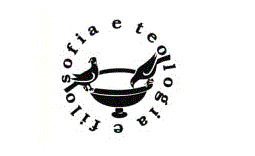


L’articolo indaga l’apporto offerto alla teologia contemporanea dalla riscoperta novecentesca della Chora platonica, intuizione feconda e sfuggente che il filosofo greco pone al centro del Timeo. Nella prima parte si riassumono i luoghi e le tensioni del dibattito scaturito, soprattutto in ambito anglosassone, dall’innesto di Chora nella riflessione teologica (cf. i contributi di Derrida, Caputo e Kearney). Nella seconda parte l’articolo mostra come, malgrado la funzione negativa e decostruttiva di Chora, tale intuizione apra, sorprendentemente, a una ricomprensione feconda dell’evento cristologico che fonda l’esperienza cristiana.
Parole chiave: Chora, Cristologia, decostruzionismo
The article investigates the contribution offered to contemporary theology by the 20th century rediscovery of Platonic Chora, a fertile and elusive intuition that the Greek philosopher placed at the center of the Timaeus. The first part summarizes the places and tensions of the debate that emerged, especially in the Anglo-Saxon context, from the grafting of Chora into theological reflection (see the contributions of Derrida, Caputo and Kearney). In the second part, the article shows how, despite Chora's negative and deconstructive function, this intuition opens, surprisingly, to a fruitful re-comprehension of the Christological event that founds the Christian experience.
Keywords: Chora, Christology, deconstructionism